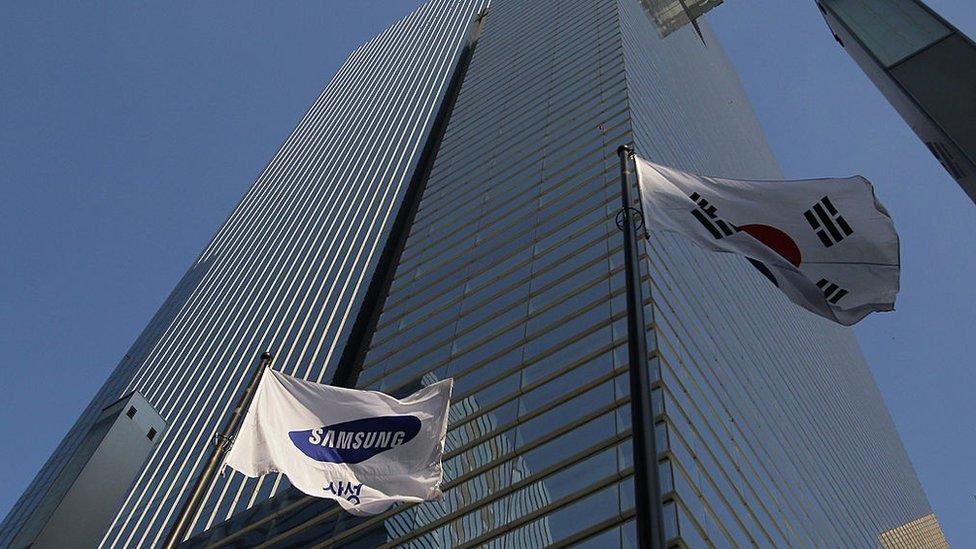Samsung tells South Korea corruption inquiry of 'gift horse'
- Published
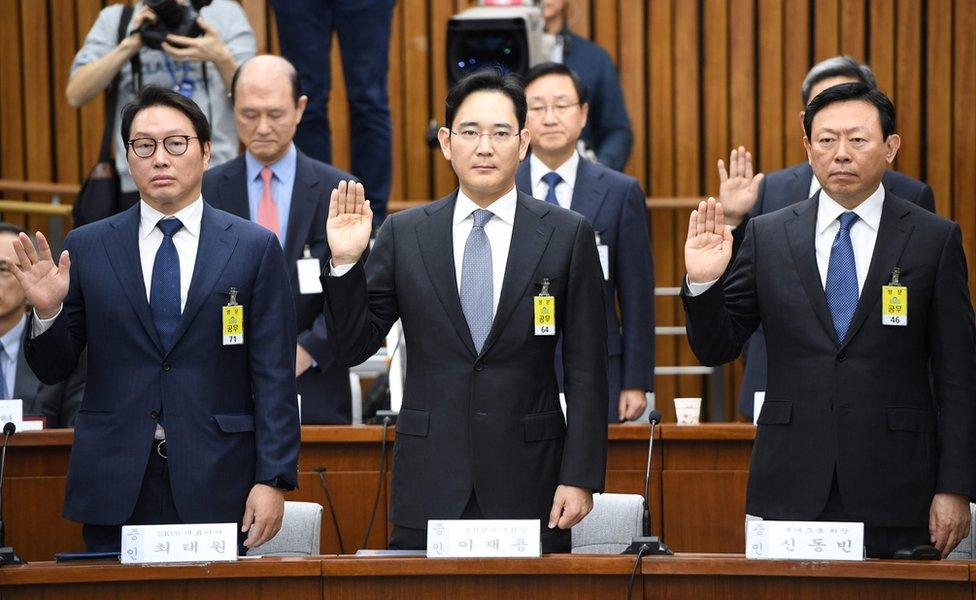
Those being questioned include the heads of SK Group, Samsung Group and Lotte Group
Electronics company Samsung has admitted it gave a horse to the daughter of a woman who is at the centre of a corruption scandal embroiling the South Korean president.
Lawmakers were questioning leaders of big businesses in a rare TV hearing, as part of a huge corruption inquiry.
Eight firms admit donating funds linked to President Park Geun-hye, but deny seeking favours.
Parliament is due to vote on Friday on Ms Park's impeachment over the scandal.
Massive protests have been held in recent weeks demanding her resignation.
The executives are being questioned by a cross-party committee of lawmakers. The panel has no power to punish but its chairman has said the hearing is a place for apology.
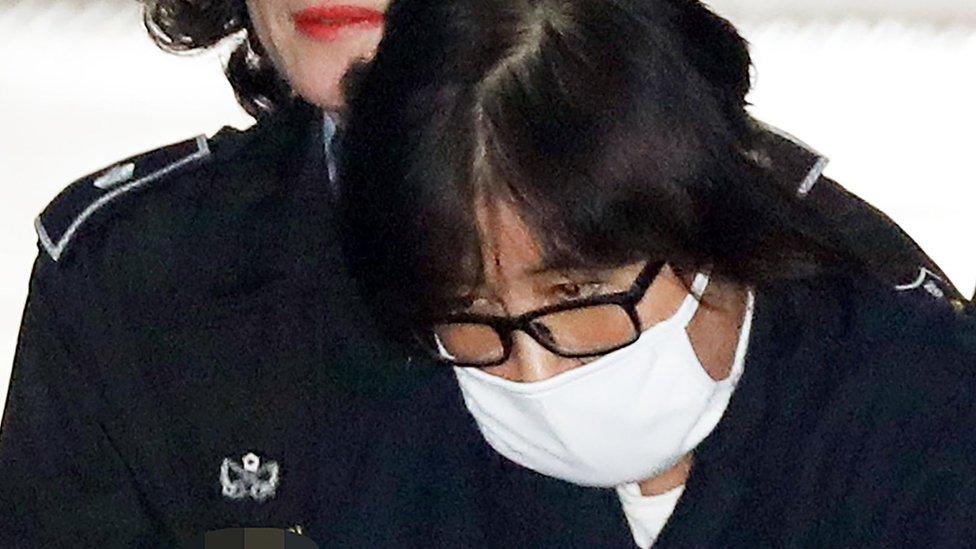
Choi Soon-sil, the woman at the centre of the scandal, is in custody awaiting trial
The conglomerates are all accused of giving large donations to non-profit foundations operated by Choi Soon-sil, a close confidante of Ms Park. Ms Choi has been charged with coercion and attempted fraud.
Samsung has been accused of donating in exchange for support of a controversial merger that effectively strengthened the position of de-facto company head Lee Jae-yong.
The company gave a total of 20.4bn won (£16m; $17.46m) to the two foundations.
Prosecutors argued that Samsung paid $3m towards equestrian training for dressage competitor Chung Yoo-ra, the daughter of Ms Choi.
They say that Ms Chung spent some of the money on the horse, Vitani V, thought to be worth around $850,000.
Lee Jae-yong confirmed to the inquiry that the company had paid for the horse, saying he regretted doing this.
But he denied that money donated to the foundations had been given "in return for something".
Mr Lee apologised for Samsung's involvement in the scandal and said his company would "take all responsibility" if there were any.
One of the corporate bosses acknowledged that it was difficult for firms to say no to government requests.
"It's a South Korean reality that if there is a government request, it is difficult for companies to decline," said Huh Chang-soo, head of the GS Group and chairman of the Federation of Korean Industries lobby group.

Hard questions: Stephen Evans, BBC News, Seoul
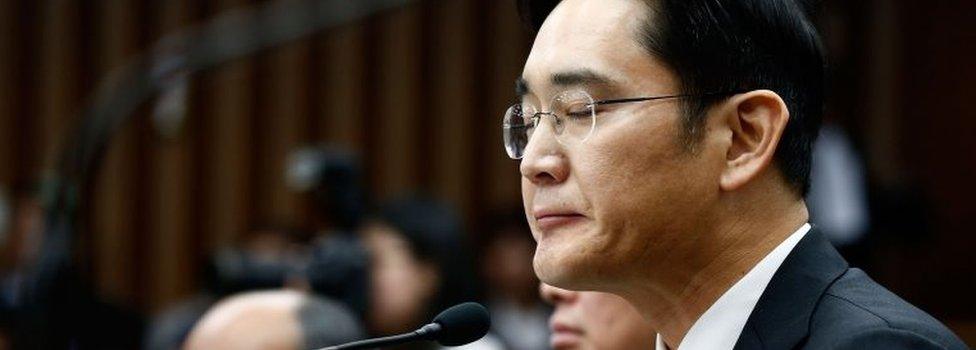
Lee Jae-yong seemed discomfited by questioning
These are men who never appear in public if they can help it. They normally live in an enclave of power and wealth, hidden behind the shaded glass of chauffeur-driven black cars.
But they filed in, each in their corporate uniform of a dark suit. They raised their right hands and promised to tell the truth. And then they were subject to what they are not used to: hard questions which some might deem impertinent.
The hearing has the air of a spectacle because press photographers have been allowed to stay and they crane towards the business titans from ladders, constantly firing off loud barrages of clicks.
The de-facto head of Samsung, Lee Jae-yong, seemed discomfited by questioning. His eyes moistened when his bed-ridden father was mentioned. And he gulped when asked how much inheritance tax he had paid. He didn't know, he said.
He did defend donations to funds controlled by a friend of the president, saying his company often gave money to what seemed like a good cause.

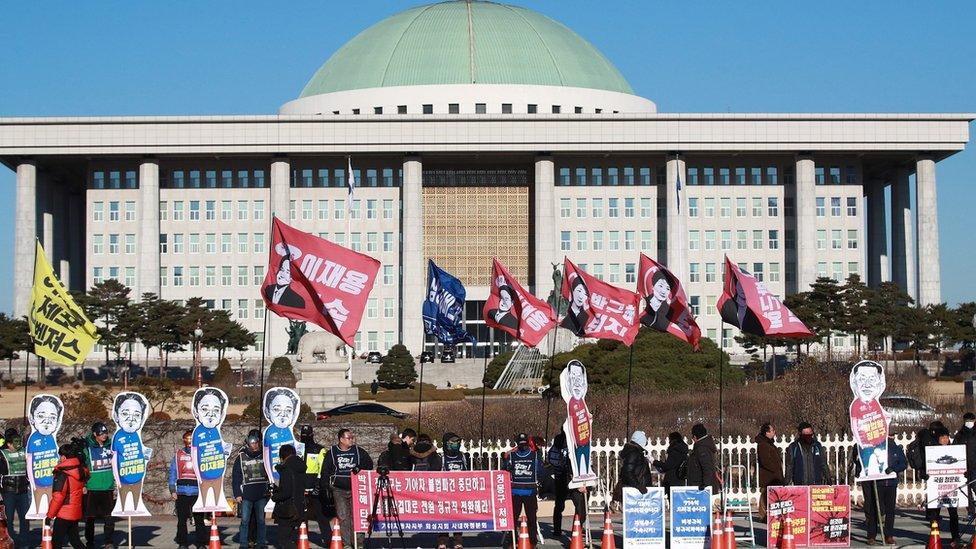
Labour unions protested against the chaebols outside the parliamentary hearing in Seoul
South Korea's family-owned conglomerates, known as chaebols, have increasingly been perceived as a symbol of the out-of-touch elite, and have become a target of public fury in recent protests calling for Ms Park's resignation.
Ms Park has apologised multiple times to the public for allowing Ms Choi inappropriate access to government decisions but has stopped short of resigning.
Last week she said she would leave it to parliament to decide her fate, and on Tuesday she was quoted by her party's leader as saying she would accept the outcome of Friday's impeachment vote.
- Published6 April 2018
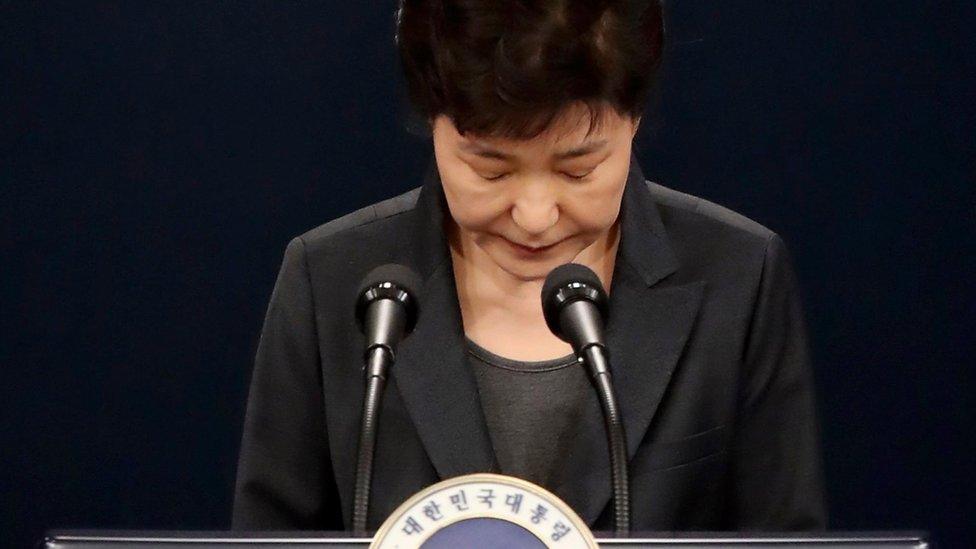
- Published31 October 2016
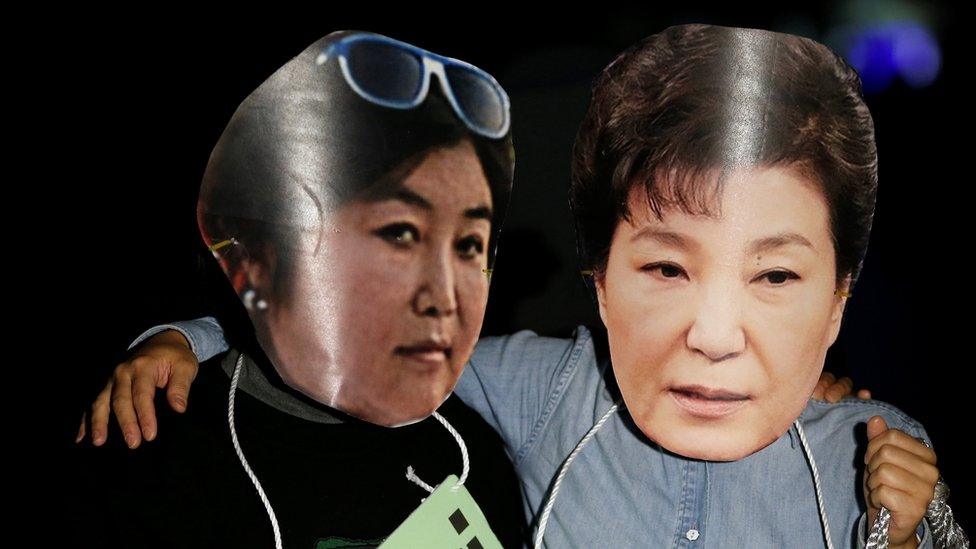
- Published9 December 2016
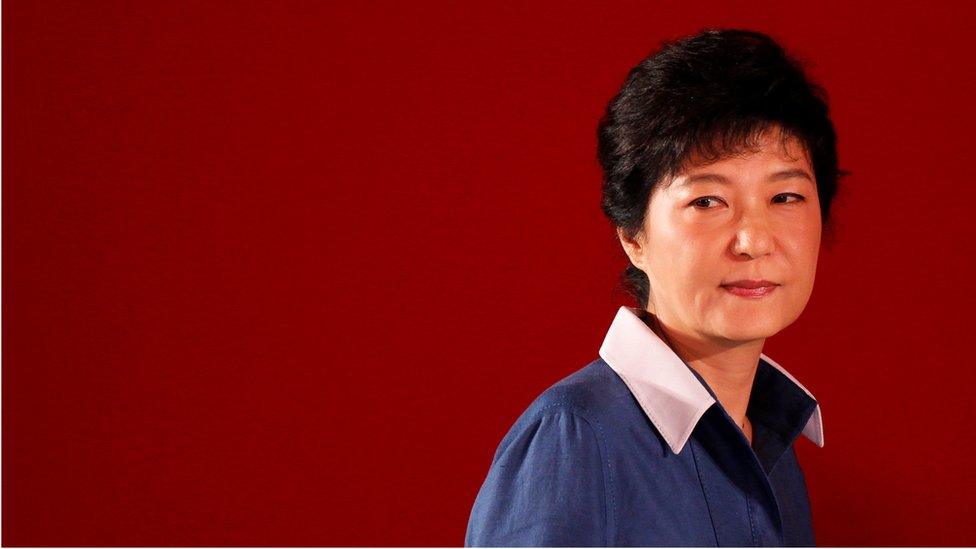
- Published2 December 2016
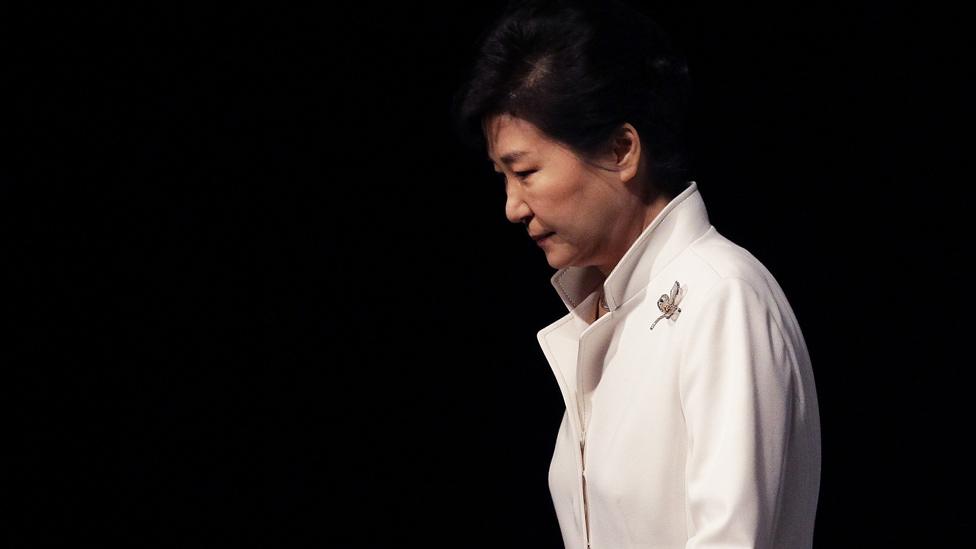
- Published15 October 2016
